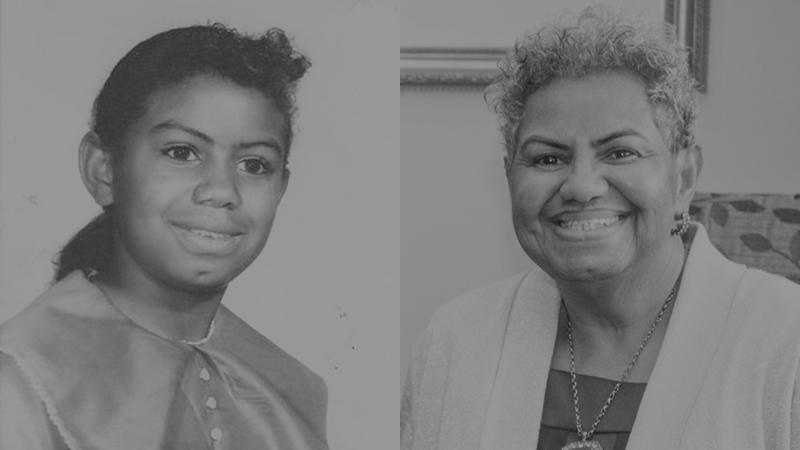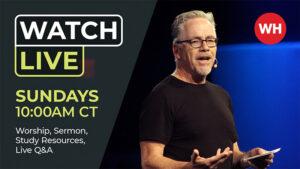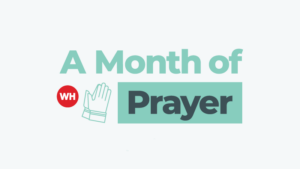The theme of our 2023 MLK celebration was “Hope in Action.” Even 60 years after Dr. King’s “I Have a Dream,” speech, much work remains to bring us to true justice, reconciliation and peace. To sustain this work, we need hope. But how do you carry hope when things move so slowly and it’s “two steps forward, one step backward?”
We asked Mary, one of the volunteers on our MLK service planning team, to share her thoughts on hope that sustains action. May her story build up your own hope!
What was your Experience Like Growing up in the 1960s?
I grew up in Illinois during the 1960s. When things began to unfold with the Civil Rights Movement, I began to ask a lot of questions.
My father hated the South. He grew up in Greenwood, Mississippi where he had to work the cotton fields as a young boy. He told me and my cousins stories about the “whites only” drinking fountains, bathrooms and movie theaters, and about being required to drop his head and step off the sidewalk when he saw a white person coming. My father feared for his life growing up.
My mother was a cook in Illinois. She worked at the country club and at five star restaurants. I used to help her prepare the meals, but we always had to go in the back door. I did not understand at the time why we were not allowed to eat there, because it didn’t say “whites only,” but later my mother explained most African Americans could not afford the exclusive memberships.
In 1960 my school, Taylor Park, hired its first African American teacher. The white parents called a special meeting against the administration and threatened to remove their children. I remember the day our school was forced to integrate. Those white children had never seen an African American and you could see it in the way they looked at us! I remember young girls asking whether we took baths, but later on we ended up being the best of friends.
In 1966, when I was 16 years old, my mother and I were the first African Americans to be hired at a nursing home. When our administrator planned our staff Christmas party at the Eagles Club, they asked if he had any black employees. When he said yes, the manager said, “We don’t serve those people here at our club.” The administrator threatened to cancel his membership, but the manager did not want to lose his business, so we were the first African Americans to be served at that club. The looks that my mother and I got that night are indescribable.
Most of my life—even up to this day—I have experienced walking into restaurants, libraries, department stores, grocery stores, the YMCA and even churches and having white people turn around and look at me as if to say, “What are you doing here?” I could go on and on with stories, but I will stop there.
What memories do you have of Martin Luther King, Jr.?
When I heard about Dr. King, I was very intrigued, but I found it impossible to find any material on Black history at my school or at our local library. I remember the librarian becoming very irritated with me for even looking for material about Dr. King, the boycotts, the Civil Rights Movement or the March on Washington. Every time any news came on television about Dr. King or the Civil Rights Movement, our entire family would gather around and watch. I remember being 12 years old when I watched in horror as police in Birmingham, Alabama aimed high-powered fire hoses and sicced dogs on black men, women and even children. All those people wanted was to be treated as American citizens with equal rights.
What about MLK inspires hope in you?
MLK’s faith in God and his sacrificial love for all people inspires my hope. He wanted equal rights for all people, and he was able to promote justice for all peacefully. One of my favorite quotes of Dr. King’s that has given me the most hope is, “I have decided to stick with love. Hate is too great a burden to bear.”
How did you experience hope in the struggle for racial justice as a young person?
My grandfather, who was a preacher, took me under his wing most of my young life and taught me that racial injustice was wrong and that it was a sin. However, he said that I had to hate the sin but not the person. I would ask, “How can I like people who treat me and others that way?” And he would say, “I want you to love them because God loves them.” He also told me that I needed to pray for them and that someday God would make things alright. I guess because I trusted my grandfather and he led by example, I knew it was right. I also learned to lean on God for strength because he is where our hope comes from. Giving up was not an option; perseverance was like breathing.
How do you experience hope now in this same struggle?
I must admit that at times it can still be very discouraging, however, my grandfather’s words still ring true: someday God is going to make everything right. I still look at racial injustice as part of a fallen world—that doesn’t excuse it, but it helps me to be more diligent in my prayers for change.
There are things that give me hope: when white people acknowledge that racial injustice is still happening today and when they acknowledge their white privilege. When I hear white people speak up and say racial injustice is wrong and will not be tolerated. When my white friends, neighbors or co-workers come to me and say, “I want to learn more, and I want to participate in making changes, what can I do?” Coming alongside of us, speaking out for what’s right and loving us through the process makes this journey so much better.
What words of hope do you have to give to others at Woodland?
Sometimes, even if it is very hard to turn a page of life because it’s too heavy, being willing to turn it anyway because we need change makes all the difference in the world. Healing will not happen overnight, change takes time, the key factor is as long as we keep moving in the right direction there is hope.




Thank you Mary for sharing. Your wisdom, perseverance and faith are incredible.
Mary,
Thank you for sharing your story. I feel honored to know you. I have enjoyed getting to know you. I pray that we can spend more time together.
Diane Ruday
Thanks for sharing. I appreciate your faith, hope and perseverance in this struggle against racism. Im glad you are a part of the WH community!